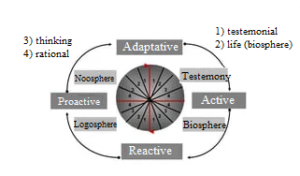
Limits and importance of testimony
The men who gave a great turning point in history and who made a difference in their time were those whose testimony influenced and often changed the course of history, what seemed inevitable was avoided, what seemed lost was clarified.
and who made a difference in their time were those whose testimony influenced and often changed the course of history, what seemed inevitable was avoided, what seemed lost was clarified.
It doesn’t mean that they didn’t think and reason, but that they witnessed and lived first.
Mahatma Gandhi unleashed civil disobedience in his country, India, to encourage the struggle for the country’s independence from England, on August 15, 1947 it was won with violence being practiced only by the British colonizers.
Everyone knows Martin Luther King’s peaceful fight, but it was the gesture of a black woman who triggered his fight, the woman named Rosa Parks, who in Alabama, in 1st. In December 1955, she refused to give up her seat on a bus to a white man, she was arrested and forced to pay a $14.00 bail.
Nelson Mandela after leaving prison, and leading the end of the racist regime of “apartheid”, in 1994 becomes the first black president of South Africa, instead of “taking revenge” on whites, he proposes a new attitude, contrary to of the dominators and recreates South Africa with racial tolerance and the presidents that followed him were all black, in a demonstration that won the fight and disarmed his persecutors.
There is talk of the miracle of the loaves, but the most important thing follows later in the biblical narrative in Matthew 14, 22-24, he had dismissed the crowd that had eaten the loaves, the disciples got into the boat and Jesus withdrew to pray alone, then went walking to the disciples over the sea.
The disciples are frightened by this image, they say “it is a ghost”, but He says: “it is I”, Peter also wants to walk on the water, Jesus calls him, but he sinks, weak in faith, the witness not only requires truth and experience, but also a belief and cannot be distant from it.
More than the miracle of bread that satisfies the body, Jesus wants the miracle of faith, which satisfies the soul.









